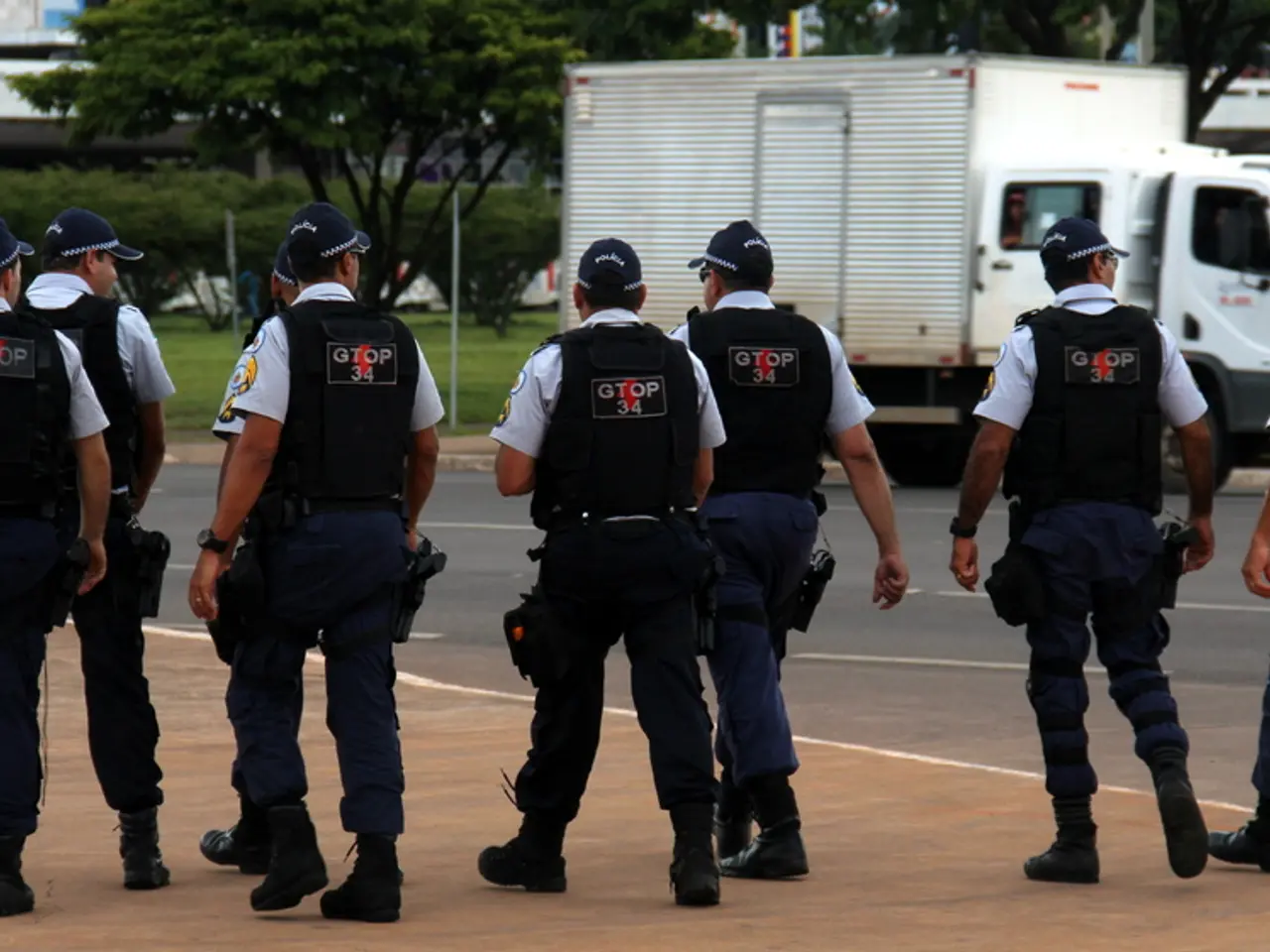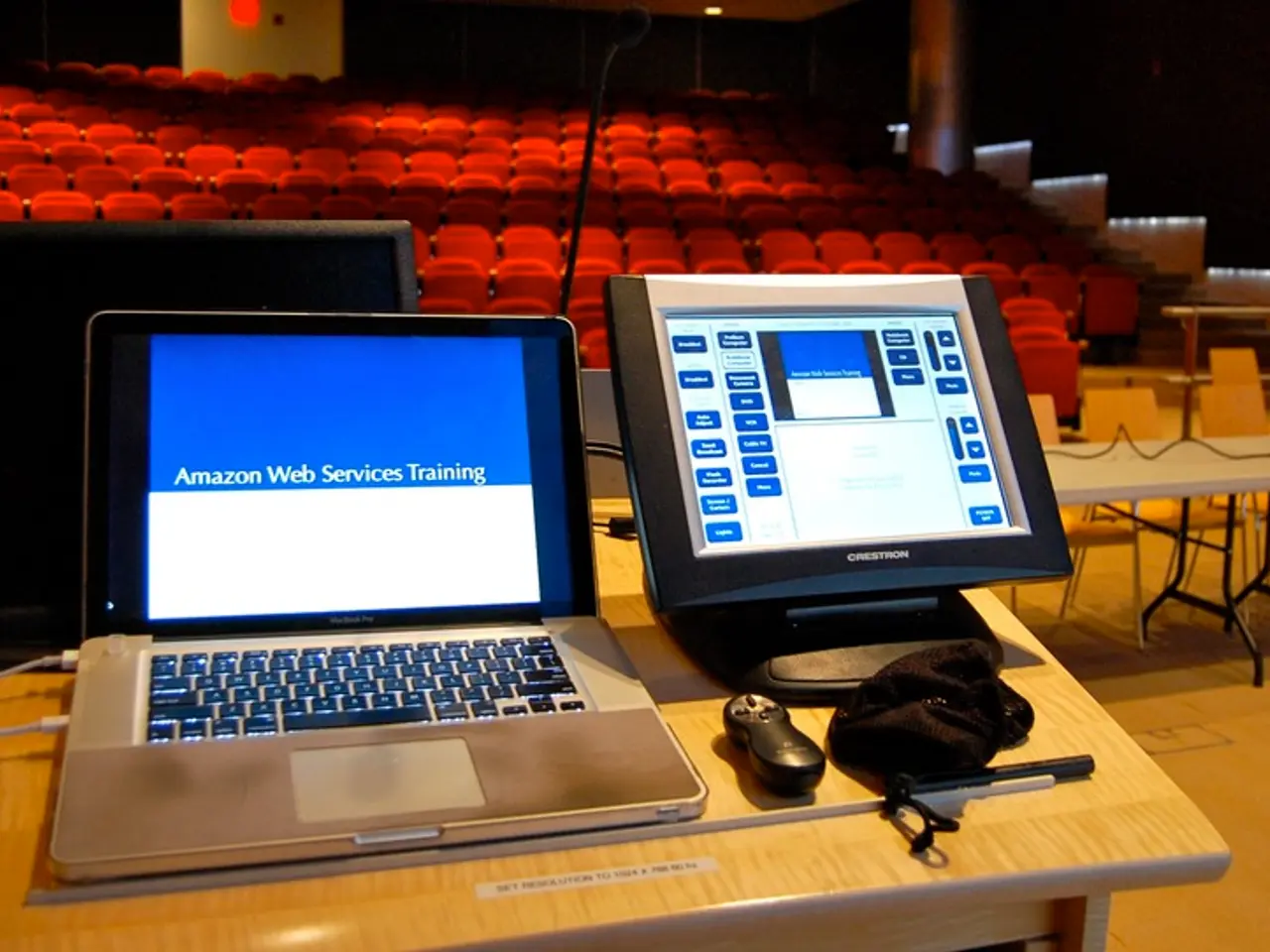Propagated Deception Emerging as a Viral Pandemic
In the digital age, disinformation has become a significant threat to democratic societies, much like a virus that spreads rapidly and undermines trust. One key indicator of this threat is the R value, a term used in epidemiology to represent the average number of people one infected individual can pass the virus to. In the case of disinformation, reducing this R value is crucial for maintaining democratic resilience.
The Chinese Communist Party (CCP) has been systematically deploying artificial intelligence-generated content and fake accounts in a cyberwar against Taiwan, flooding social media with emotionally provocative, misleading, and divisive disinformation posts and images every day. This strategic approach mirrors the organized and collective behavior of a biological virus, making it all the more important for democratic societies to develop digital immunity.
Democratic societies can build this digital immunity by implementing a multifaceted approach combining legal, technological, educational, and civic strategies.
- Enhanced AI Oversight and Platform Accountability: Democracies should embed AI-specific governance mechanisms that hold digital platforms accountable for the amplification of disinformation, especially AI-driven forms. This involves enforceable regulatory harmonization across jurisdictions to ensure platforms act responsibly in content moderation without infringing on free expression.
- Civic Education and Digital Literacy: Raising public awareness through national defense education and sustained civic training helps populations recognize and resist cognitive warfare tactics. Educational initiatives should cultivate habits of rationality, verification, calmness, and critical thinking.
- Multi-Stakeholder and Intersectoral Coordination: Integrating military and civilian resources—including information and communication industries—into national defense mobilization systems enhances capabilities to review, analyze, and counteract disinformation in both peacetime and crises.
- Strategic Communication and Public Guidance Frameworks: Governments can adopt counter-disinformation toolkits such as the UK's RESIST program, emphasizing strategic communications planning, resilience building, and proactive citizen guidance to improve individuals’ information hygiene and reduce susceptibility to manipulation.
- Legal and Regulatory Developments Aligned with Democratic Values: Clear definitions of disinformation facilitate legislative and regulatory actions that balance combating malign influence with protecting democratic freedoms.
- Global Cooperation and Norm Building: Because cognitive and informational warfare, including CCP disinformation campaigns, transcend borders, democracies must collaborate internationally to counter these threats.
Politicians and influencers also have a role to play in this battle. Refusing to become pawns in the CCP's cyberwarfare and promoting transparency regarding social media algorithms and labeling content sources can help curb the unintentional spread of false information.
In the fight against disinformation, every individual plays a vital role. Every time we share correct information or infographics, it is analogous to a vaccination—generating further immunity. Every time we report, block, or refrain from sharing, we become an antibody.
Developing digital immunity includes strengthening language and media literacy in education. Forming communities that independently block, report, and counter online disinformation campaigns is important. Spreading accurate information and linguistic antibodies is a strategy for cognitive epidemic prevention.
In sum, democratic digital immunity demands robust AI governance, widespread digital literacy, multifaceted state-society coordination, strategic communication, and international cooperation to prevent systemic breakdowns from disinformation originating from actors like the CCP. By implementing these strategies, democratic societies can maintain their resilience and avoid systemic paralysis in cyberspace.
[1] European Union Agency for Cybersecurity (ENISA). (2020). Threat Landscape 2020: Trends and Challenges in Cybersecurity. Retrieved from https://www.enisa.europa.eu/publications/threat-landscape-2020
[2] National Security Council (NSC). (2020). The Cybersecurity Strategy of the United States of America. Retrieved from https://www.whitehouse.gov/wp-content/uploads/2020/05/NSC-Cybersecurity-Strategy-2020.pdf
[3] Centre for Strategic and International Studies (CSIS). (2020). The CCP’s Campaign Against Taiwan: A New Approach to Countering Cognitive Warfare. Retrieved from https://www.csis.org/analysis/ccps-campaign-against-taiwan-new-approach-countering-cognitive-warfare
[4] Carnegie Endowment for International Peace. (2020). Countering China’s Cognitive Warfare: A Playbook for the United States. Retrieved from https://carnegieendowment.org/2020/10/20/countering-china-s-cognitive-warfare-playbook-for-united-states-pub-83134
[5] Stanford Internet Observatory. (2020). The CCP’s Campaign Against Taiwan: A New Approach to Countering Cognitive Warfare. Retrieved from https://internetobservatory.stanford.edu/reports/2020/ccps-campaign-against-taiwan-new-approach-countering-cognitive-warfare/
- To combat the CCP's cyberwarfare against democratic societies, policymakers must prioritize technology, policy-and-legislation, and politics, working together to enforce new cybersecurity regulations, promote transparency, and stimulate international cooperation in the fight against disinformation.
- In light of the global threat of disinformation, it is essential for general-news media outlets to collaborate and apply technology, such as AI-driven fact-checking tools, to strengthen their ability to verify and counteract misinformation, ensuring a more reliable, trustworthy, and resilient news landscape.




